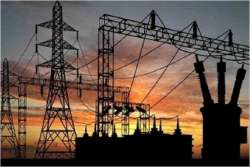Delhi clocks highest peak power demand of 5,805 MW
Delhi's peak power demand clocked 5,805 MW on Monday night, the season's highest, surpassing the previous high of 5,591 MW recorded on June 12, power discom BSES said on Tuesday.

Delhi's peak power demand clocked 5,805 MW on Monday night, the season's highest, surpassing the previous high of 5,591 MW recorded on June 12, power discom BSES said on Tuesday.
It noted that because of the weather, Delhi's peak power demand was a bit muted some days back but off late, it has been increasing steadily.
"On their part, BRPL (BSES Rajdhani Power Ltd) and BYPL (BSES Yamuna Power Ltd) successfully met the peak power demand of 2,635 MW and 1,311 MW respectively. Last year, Delhi's peak power demand had clocked 7,409 MW. In BRPL's area, it was 3,211 MW and 1,686 MW respectively," the BSES statement said.
After the end of the third phase lockdown on May 17 and the easing of restrictions, Delhi's peak power started increasing and the gap narrowed. Since easing of restrictions on May 18, Delhi's peak power demand has increased by over 40 per cent.
"If we compare the peak power demand of April 2020 with that of June 2020, Delhi's peak power demand has already increased by over 72 per cent. Peak power demand in April was 3,362 MW and in June (June 15) 5,805 MW," said the BSES statement.
Since June 1, 2020, Delhi's peak power demand has increased by over 52 per cent. It was 3,807 MW on June 1.
The statement also said that being in essential services, BSES is always geared up to ensure quality and reliable power supply to its consumers.
"We are closely watching the evolving coronavirus situation in the national capital and taking all appropriate measures to ensure reliable power supply to our consumers without compromising the safety of our employees," it said.
On all these aspects, BSES discoms are fully geared to ensure adequate power availability during the summer months, it added.
Arrangements have been firmed up by BSES discoms to source adequate electricity to meet the power demand of over 44 lakh consumers, including long term power purchase agreements (PPA) and banking arrangements of up to 800 MW with other states.
In case of unforeseen contingencies because of low generation and outages in power plants, the discoms will purchase short-term power from the exchange, the company said.